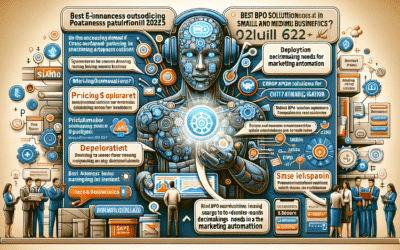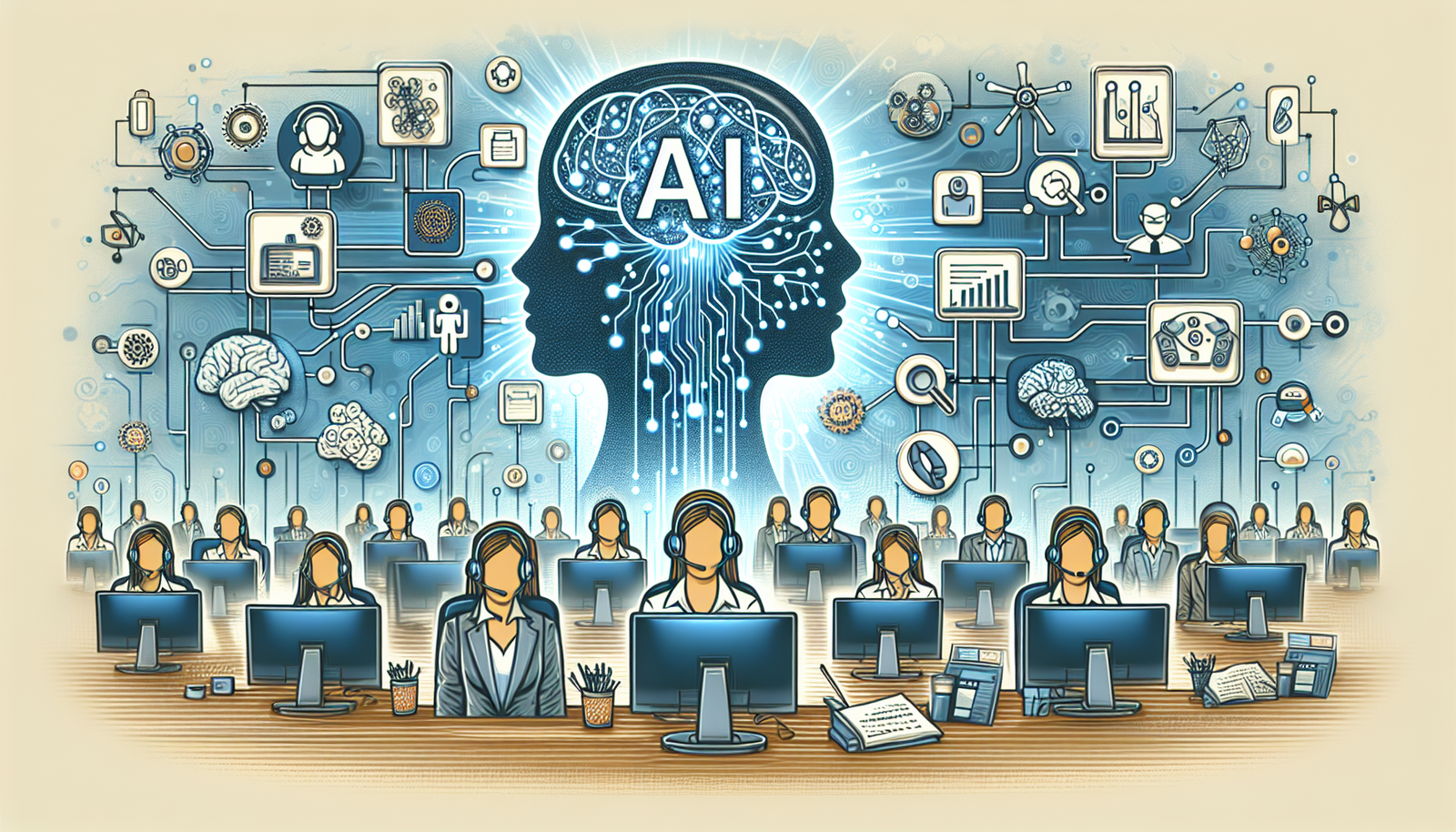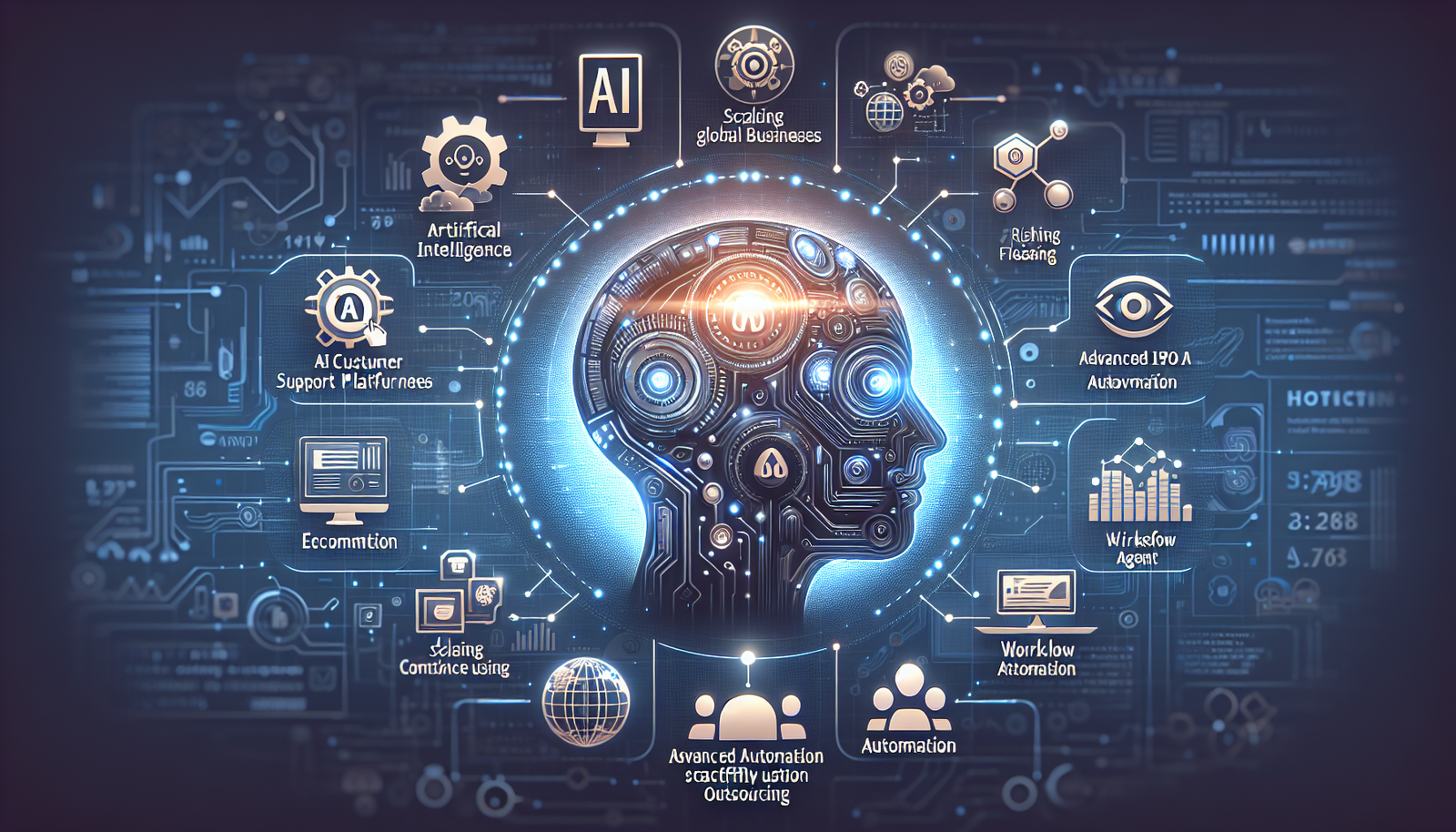Introduction: How AI is Revolutionizing Business Process Outsourcing
Artificial Intelligence (AI) is no longer confined to labs or niche applications. It’s dramatically reshaping traditional industries—from healthcare to finance. Among the most significantly affected sectors is Business Process Outsourcing (BPO), where AI technologies like natural language processing, machine learning, and robotic process automation (RPA) are streamlining operations and unlocking new opportunities.
BPO has long been leveraged for cost savings and operational scalability. Now, AI is optimizing those advantages by automating tasks, enhancing customer interactions, and making outsourcing smarter, faster, and more value-driven.
Key Areas of AI Impact in BPO
Automation of Repetitive Tasks
One of the most immediate applications of AI in BPO is the automation of rule-based, repetitive tasks. RPA bots can now handle invoice processing, data migration, payroll, and other routine processes with minimal human oversight. This shifts human roles toward higher-value, analytical endeavors.
AI-powered Customer Service and Chatbots
AI-powered chatbots and virtual agents are transforming customer support functions outsourced to call centers. These bots can handle tier-1 queries, provide 24/7 support, and escalate complex issues to human agents, reducing costs by up to 30% according to IBM.
Intelligent Document Processing and Data Extraction
Gone are the days of manual data entry. AI tools can now extract information from invoices, legal documents, and PDFs with high accuracy. This is especially valuable in insurance, legal and finance-centric BPO verticals.
Predictive Analytics for Decision Support
AI algorithms can now analyze business data to identify trends and predict customer behaviors or fraud risks. BPO firms use these insights to enhance client service delivery and refine business models.
Benefits of AI Integration in Outsourced Operations
Cost Reduction and Efficiency
Automated workflows reduce the number of manual hours required, thereby lowering labor costs. Deloitte reports significant productivity gains across AI-augmented BPO operations, with some firms reducing processing times by 60%.
Scalability and Operational Flexibility
AI systems can scale up effortlessly to support peak workloads without the need to hire additional staff. This gives BPO providers a massive edge in handling seasonal or volatile demand.
Enhanced Accuracy and Compliance
AI reduces human error and ensures compliance by standardizing outputs. For industries with tight regulations like finance or healthcare, this leads to fewer penalties and smoother audits.
Challenges and Considerations for BPO Providers
Workforce Reskilling and AI Onboarding
As AI tools take over transactional tasks, BPO firms must upskill their workforce to handle exceptions, analyze insights, and work alongside automation platforms. The human-AI partnership is critical for future success.
Data Security and Ethical Concerns
AI systems require access to sensitive data. Ensuring encryption, access control, and responsible AI usage becomes fundamental. Ethical concerns around bias and explainability must also be proactively addressed.
Vendor Alignment and Platform Integration
Integrating AI into existing IT and BPO operations can be complex. Providers must collaborate with AI vendors who understand BPO intricacies and ensure platform interoperability for seamless transformation.
Future Outlook: What’s Next for AI in BPO
The Shift to “Intelligent Process Outsourcing”
As automation matures, the industry is evolving from conventional BPO to Intelligent Process Outsourcing (IPO)—where AI augments every stage of the workflow, from intake to analysis to reporting.
Partnership Models Between AI and Human Agents
Rather than replacing agents, AI is becoming a co-pilot. Human agents supported by AI recommendations, transcription tools, and sentiment analysis software are proving more effective and empathetic in client interactions.
Emerging Use Cases Beyond Back-office Support
AI is being increasingly used in front-office and mid-office scenarios, such as intelligent sales routing, automated compliance checks, and AI-driven knowledge management.
FAQs: AI in BPO
Can AI completely replace human workers in BPO?
No. AI is augmenting—not replacing—human workers. It handles repetitive tasks, while humans focus on strategic, sensitive, or emotional functions that AI cannot replicate.
What types of BPO services benefit most from AI?
Customer support, claims processing, finance and accounting, and data-intensive verticals (like healthcare and legal process outsourcing) benefit the most from AI integration.
Is AI adoption in BPO expensive?
Initial investment in AI tools and training can be high, but they often yield quick ROI through cost savings and productivity boosts. Many vendors offer scalable, cloud-based solutions to reduce upfront costs.
Focus Keyword: AI in Business Process Outsourcing






